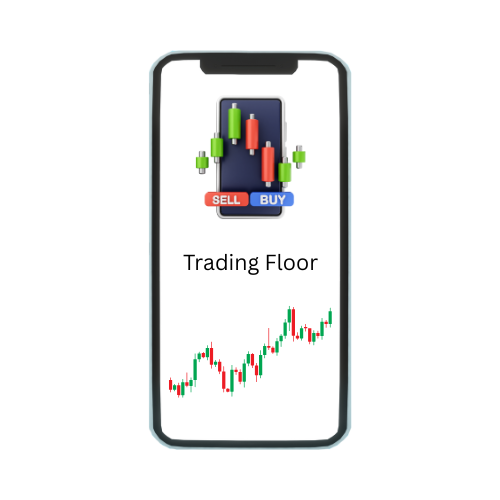Buy to cover is a trading term used primarily in short selling, referring to the action of purchasing shares to close out a previously established short position. When an investor believes that a stock’s price will decline, they may short sell the stock, borrowing shares and selling them at the current market price.
To realize a profit or limit potential losses, the investor later executes a buy to cover order, effectively buying back the shares at the current market price. This order is essential for short sellers to close their positions and return the borrowed shares to the lender.
How Short Selling Works
- In a short sale, an investor borrows shares of a stock from a broker and sells them at the current market price. The goal is to repurchase the shares later at a lower price, return them to the lender, and pocket the difference.
- For example, if an investor shorts a stock at ₹1,000 and later buys it back at ₹800, they make a profit of ₹200 per share.
Example of Buy to Cover
- Scenario: Suppose an investor believes that the stock of Company Y, currently trading at ₹1,500, will decline in value. They short sell 100 shares at ₹1,500, receiving ₹150,000 from the sale.
- If the stock price falls to ₹1,200, the investor decides to execute a buy to cover order. They buy back the 100 shares at ₹1,200, costing them ₹120,000.
- The investor’s profit from this transaction would be ₹150,000 (initial sale) – ₹120,000 (buy to cover) = ₹30,000.
Key Characteristics
- Closing a Short Position: Buy to cover is the only way to close out a short position. Investors must buy the same number of shares they initially sold short to fulfill their obligation to return the borrowed shares.
- Market Order: A buy to cover order can be executed as a market order (immediate execution at the best available price) or a limit order (specifying a maximum price the investor is willing to pay).
Advantages of Buy to Cover
- Profit Realization: It allows investors to lock in profits when the stock price declines as expected.
- Loss Limitation: If the stock price begins to rise, investors can execute a buy to cover order to limit their losses before further price increases occur.
- Flexibility: Investors can choose to buy to cover at any time, based on their market analysis and price movements.
Disadvantages and Risks
- Unlimited Loss Potential: Short selling carries significant risk because, theoretically, a stock’s price can rise indefinitely. This means potential losses are unlimited if the stock price increases after a short sale.
- Margin Requirements: Short selling typically requires a margin account, and investors must maintain a minimum margin level. If the stock price rises, they may receive a margin call, requiring them to deposit more funds or cover the short position immediately.
- Buy to Cover Timing: Determining the right time to buy to cover can be challenging, as market conditions can change rapidly.
Related Terms
- Short Selling: The act of borrowing and selling shares to profit from an anticipated decline in price.
- Margin Account: An account that allows investors to borrow funds from a broker to purchase securities or short sell.
- Buy to Open: The opposite action, where an investor establishes a new long position in the options market.
Practical Application
- In Bearish Markets: Buy to cover is often utilized in bearish markets where investors expect declines in stock prices. It allows them to benefit from downward trends while managing risks.
- In Volatile Markets: In volatile markets, investors may need to use buy to cover orders quickly to manage positions and limit potential losses.
Execution in Trading Platforms
- To execute a buy to cover order, investors typically log into their brokerage account, navigate to the stock they wish to cover, select the quantity of shares they wish to buy back, and place the order.
- The order is then executed according to market conditions, allowing the investor to close their short position.
Example in Rupees
Suppose an investor shorts 50 shares of a company trading at ₹2,000 each, receiving ₹100,000 from the short sale. If the stock price drops to ₹1,800, the investor places a buy to cover order. They buy back the 50 shares for ₹90,000 (50 shares × ₹1,800). The profit from this transaction would be ₹100,000 – ₹90,000 = ₹10,000.
Conclusion
Buy to cover is an essential concept for investors engaged in short selling. It allows them to close their short positions and realize profits or limit losses based on market movements. While it offers opportunities for profit in declining markets, it also carries significant risks, including unlimited loss potential and margin requirements. Understanding when and how to execute a buy to cover order is critical for successful short selling strategies.







